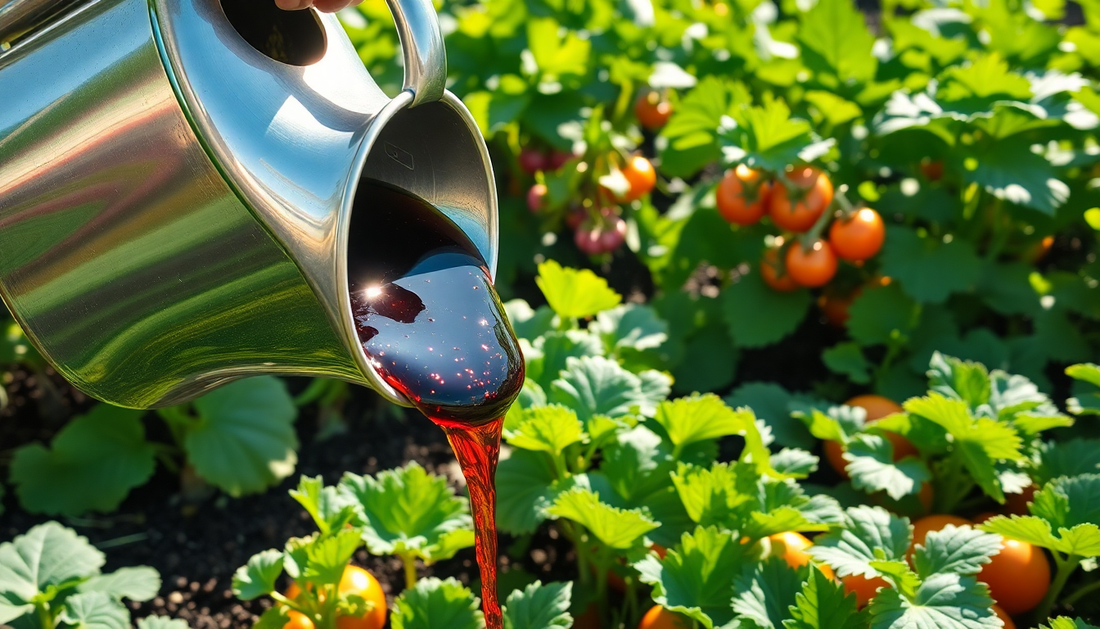
Unlock the Power of Compost Tea for a Thriving Vegetable Garden
Share
As a passionate gardener, I've always been on the lookout for natural and sustainable ways to nourish my vegetable garden. After years of experimenting, I've discovered the incredible benefits of compost tea, and I'm excited to share my insights with you.
Compost tea is a liquid extract made by steeping high-quality compost in water. This nutrient-rich solution is a powerful tool for enhancing soil health and promoting the growth of your vegetables. In this comprehensive guide, we'll explore the science behind compost tea, its numerous benefits, and how you can easily incorporate it into your gardening routine.
Understanding the Science of Compost Tea
Compost is a treasure trove of beneficial microorganisms, including bacteria, fungi, and protozoa. When you steep this compost in water, you extract these microbes, along with the essential nutrients they've helped to break down. The resulting compost tea is a concentrated liquid that can be applied directly to your soil or foliage, delivering a potent dose of organic matter and a diverse array of microbes.
These microorganisms play a crucial role in the health of your vegetable garden. They help to break down organic matter, release nutrients, and improve soil structure, all of which contribute to the overall vitality of your plants. By using compost tea, you're essentially inoculating your soil with a thriving microbial community, creating the perfect environment for your vegetables to thrive.
The Benefits of Compost Tea for Vegetable Gardens
-
Improved Soil Health: Compost tea is a natural way to enrich your soil with essential nutrients, such as nitrogen, phosphorus, and potassium. It also helps to increase the soil's water-holding capacity, improve drainage, and enhance the overall structure of the soil.
-
Enhanced Plant Growth: The microbes in compost tea work in harmony with your vegetable plants, supporting their nutrient uptake and promoting stronger root systems. This translates to healthier, more vigorous plants that are better equipped to withstand pests and diseases.
-
Reduced Pest and Disease Pressure: Compost tea contains beneficial microorganisms that can outcompete and suppress harmful pathogens, effectively reducing the risk of disease in your vegetable garden. Additionally, the nutrients in compost tea can make your plants less susceptible to pest infestations.
-
Increased Yields: By providing your vegetables with a steady supply of essential nutrients and a thriving microbial community, compost tea can help boost your overall crop yields, ensuring a bountiful harvest season after season.
-
Eco-Friendly Approach: Compost tea is a natural, sustainable, and environmentally friendly alternative to synthetic fertilizers, which can have negative impacts on the soil and surrounding ecosystems.
Incorporating Compost Tea into Your Gardening Routine
Making and using compost tea is a straightforward process that can be easily integrated into your gardening routine. Here's a step-by-step guide:
-
Prepare the Compost: Start with high-quality, well-decomposed compost. This can be homemade or purchased from a reputable supplier. The key is to ensure that the compost is rich in organic matter and a diverse array of microorganisms.
-
Steep the Compost: Fill a large container or bucket with water, then add the compost. The ratio of compost to water can vary, but a good starting point is 1 part compost to 5 parts water. Allow the mixture to steep for 24-48 hours, stirring occasionally to ensure even extraction.
-
Strain and Dilute: After the steeping period, strain the compost tea through a fine mesh screen or cheesecloth to remove any solid particles. Depending on the strength of the tea, you may need to dilute it with additional water before application.
-
Apply to Your Garden: Compost tea can be applied directly to the soil around your vegetable plants or as a foliar spray. For soil application, simply pour the tea around the base of the plants, ensuring even coverage. For foliar application, use a spray bottle or pump sprayer to mist the leaves and stems.
-
Timing and Frequency: The best time to apply compost tea is in the early morning or late afternoon, when the sun's intensity is lower. Aim to apply it every 2-4 weeks throughout the growing season, adjusting the frequency based on the needs of your specific garden.
Remember, the key to success with compost tea is to start with high-quality compost and experiment with different application methods and frequencies to find what works best for your vegetable garden. With a little practice, you'll be well on your way to unlocking the power of compost tea for a thriving, bountiful harvest.
Conclusion
Compost tea is a game-changer for vegetable gardeners looking to nourish their soil and support the overall health of their plants. By harnessing the power of beneficial microorganisms, you can create a vibrant, resilient garden that produces an abundance of fresh, flavorful vegetables. So, why not give compost tea a try and experience the transformative effects it can have on your vegetable garden? Happy gardening!
